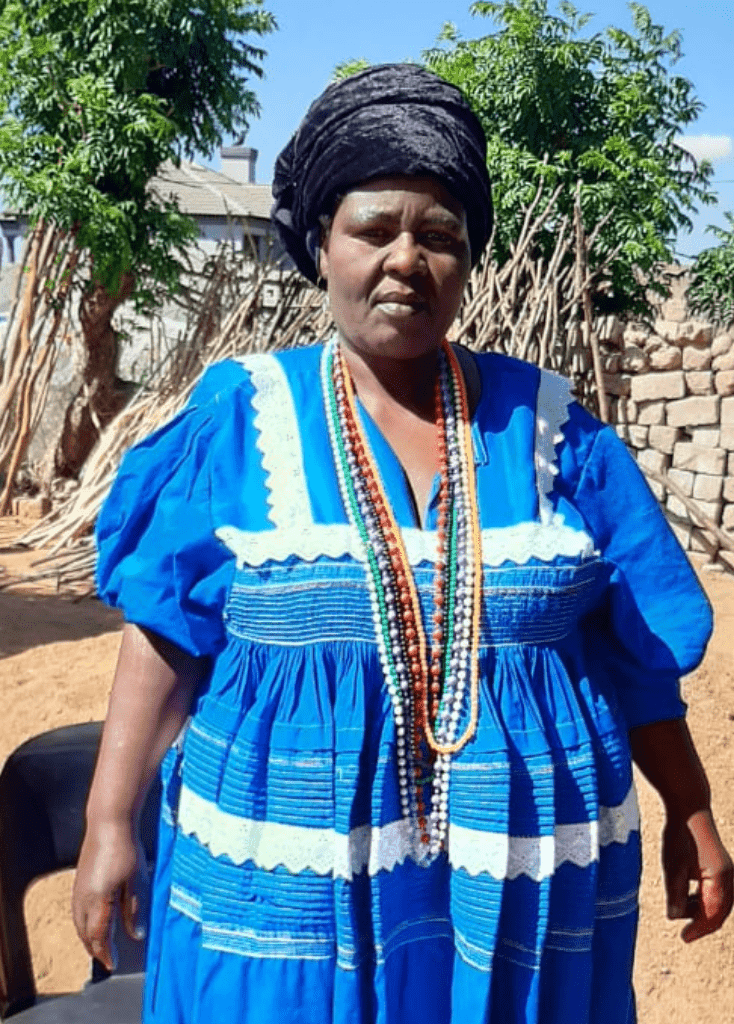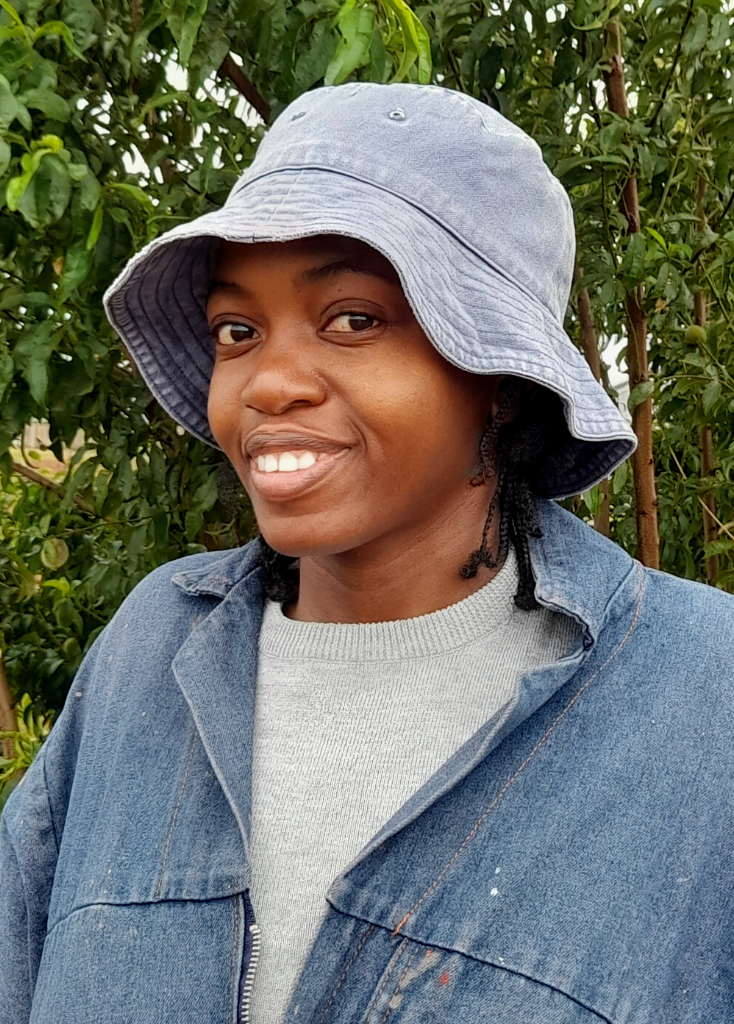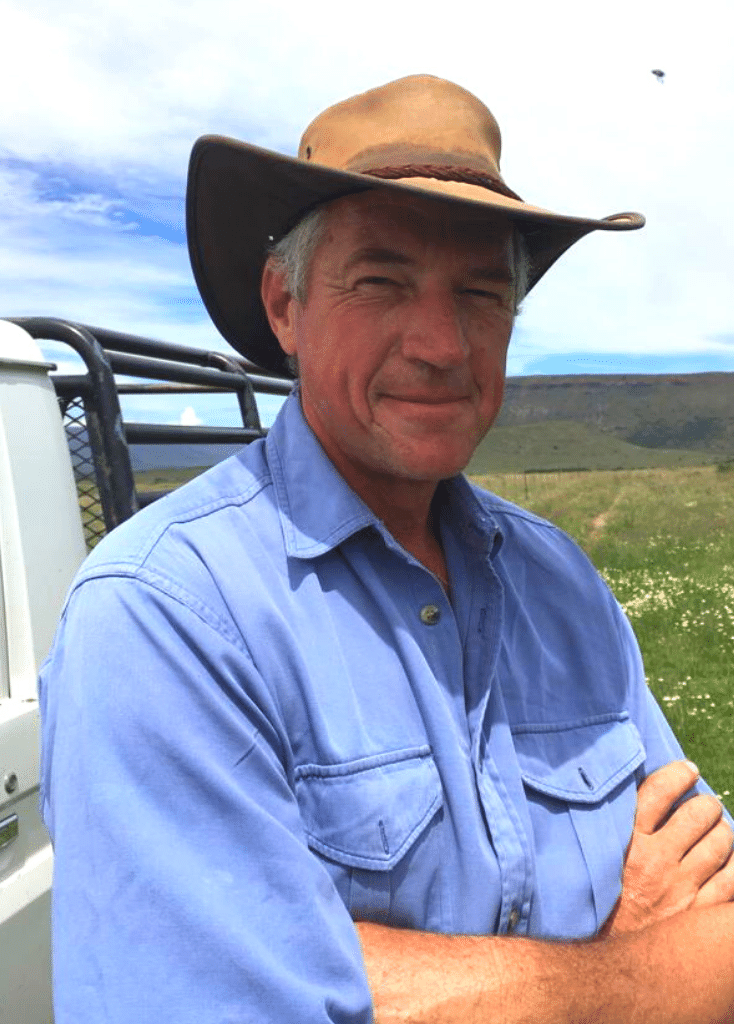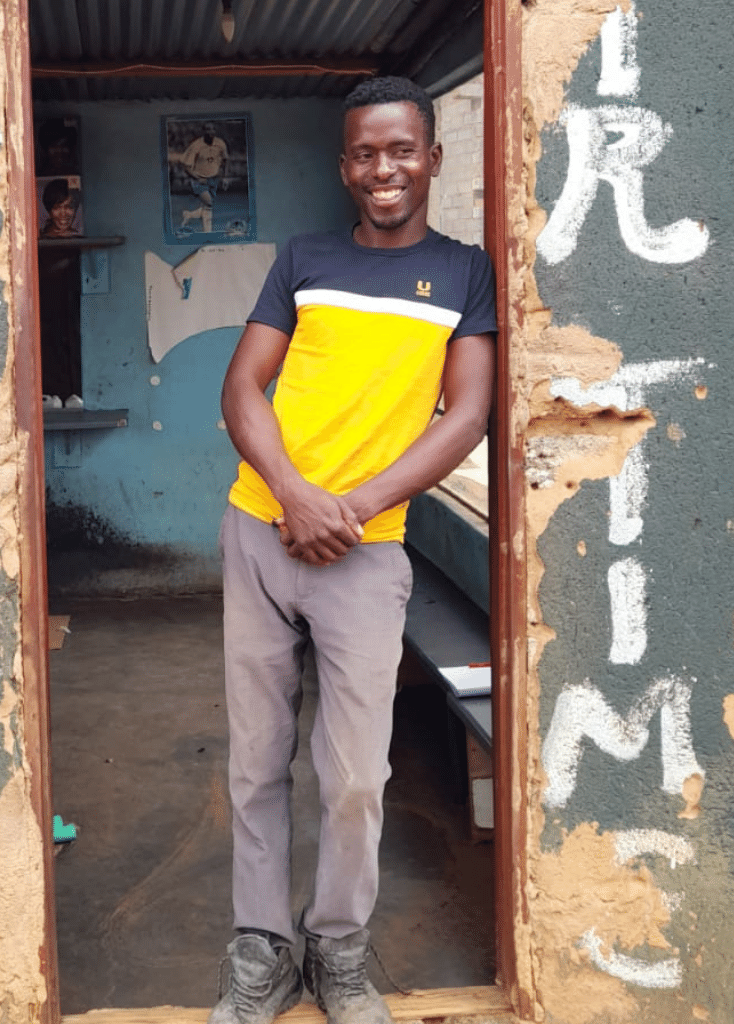
BBL PARTICIPANT: Keatlaretse Charmine Masegomi, Rankelenyane, North-West Province
In a Nutshell
Through her participation in SocioTech’s Broad-Based Livelihoods (BBL) strategies to stimulate personal economic activity, Keatlaretse Charmine Masegomi from Rankelenyane in the North-West Province has gained additional agricultural and small business knowledge. She has clear plans for her future and understands the power of her independence.
She says…
I am 23 and my brother Kamogelo is 26. We have lived here alone since my mother passed away in 2021. We have other older siblings who help us when they can, but they also have their own families to look after. Selling vegetables from this garden is a big part of our survival strategy.
We don’t just want to survive. We want to thrive. We both have big dreams. I have been accepted to do a Bachelor of Law degree. I have a government bursary that I have put on hold for one year so that I can save up for my living expenses. My brother wants to study agriculture through UNISA. We plan to fund our education through farming. Once we are qualified, we want to stay in farming. In the long term we see ourselves having more land and supplying large supermarkets. I will use my law degree skills to run the business side of the operation while my brother will be in charge of the actual farming. We need the education so that no one will be able to exploit us.
Because it is the foundation of our plan for a better life, it is essential that this garden does well – which is why we are so pleased to have found SocioTech. We met Jabu from SocioTech in February this year and even in that short time we have learnt so much. Before Jabu’s training, we were gardening, but not very successfully. My brother and I knew nothing about soil preparation or mulching. didn’t know how to make seedlings and we weren’t planning when and where to put the plants. We had no idea about drip irrigation – which is especially important here because we have a big problem with water. For over 6 months there has been no water coming out of the taps. We have been buying water from a neighbour with a borehole. Parts of the location have water back now, but ours comes and goes. What I have learnt from the water cut off is that one must be prepared in case it happens again. Jabu and Charles have been teaching us how to clean our grey water and we are saving rainwater too.
"We don't just want to survive. We want to thrive. We both have big dreams."
When the tunnel came that made a big difference. Before, chickens from neighbouring yards would come in and peck at our crops. I probably should have grabbed those birds for our pots, but I can’t do that – they belong to other people, so I was always chasing them away. The tunnel makes life so much less stressful. The garden is looking great. I am sure that our mother is proud of us. Even our older siblings say it looks very good.
Most of our land is planted with the Seven Colours type vegetables - carrots, beans, chilies, cabbage, onions, butternuts, tomatoes. In addition to those vegetables that are popular with South Africans, we are also setting aside small bits of land to experiment with other crops. There are a lot of Mozambican mineworkers in this area and they like cassava, so we are trying to grow some. When it is ready, I want to ask the Mozambicans to taste it and tell me if it is to their liking. I don’t want to gamble by putting in a lot of cassava until I am sure it is up to their standards. I have also been talking to Charles about planting bananas. I am not sure if they can survive in this climate, but I would like to try. If we can get them to grow here, that would be a delicious, speciality item.
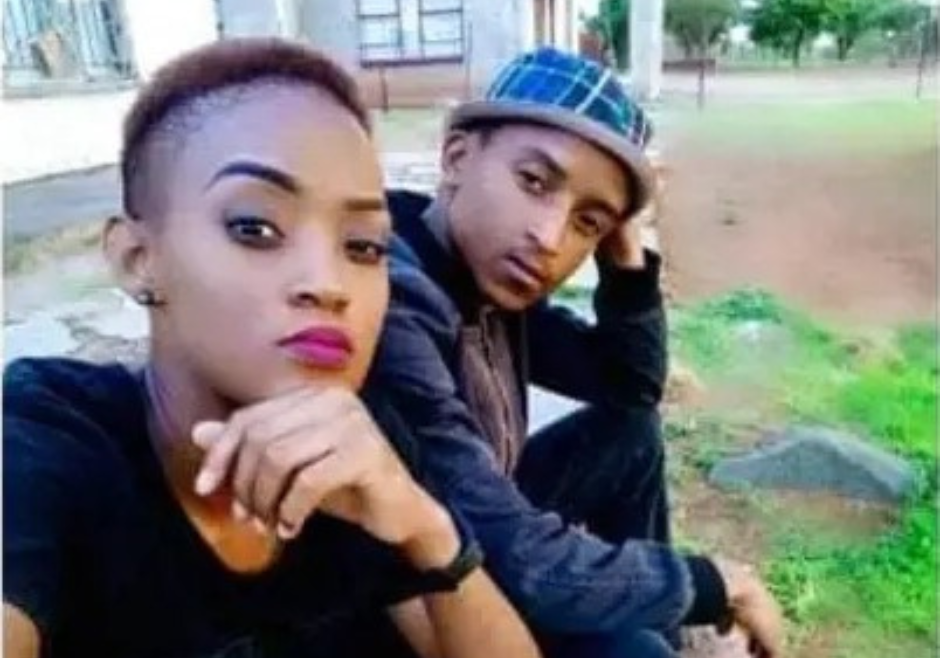

"I understand that entrepreneurship is a journey. A mistake doesn't mean that the trip is over."
Our vegetables sell well not only because they are good quality but also because buying from us is convenient and economical for people who live in this community. It takes R50 to get to Rustenburg in the taxi from here. We sell our crops in different units to cater for different sized households. A single person only needs a R10 bunch of spinach, whereas big families can take R15 or even R20 bigger bunches.
We have been working with Charles on the MyFuture programme. He has taught us not to expect too much in the first year. Be patient, keep books so that you know where the money goes and what has been spent. My brother and I sit together, and we discuss and talk about money and put small amounts away in the savings box. We know that small amounts frequently all add up. In many ways we have been good students and practiced what Charles taught us. But life is not perfect, and I did make a big mistake. Charles taught us to have several streams of income and I started doing hair and make up for special occasions like weddings and matric dances.
That went well and I earned quite good money, but the thrill of having money went to my head and I had a big craving for lovely things. It is so hard to resist. When the products and make up ran out, I realised I didn’t have money to replace them. On the one hand I am angry with myself for making that mistake but on the other hand I now know that I have learnt that lesson. I failed first time around, but when I get money to start that business up again, I will have much better money management skills. I understand that entrepreneurship is a journey. A mistake doesn’t mean that the trip is over.
One of the things I have learnt on this life journey is that we are on our own. Last month I burnt my foot. I went to the clinic, and they didn’t have the bandages or medicine for me. I was really depressed and frightened, but then I remembered that I have aloe and comfrey in my garden. So, I treated myself and my foot has healed well. I am starting to grow comfrey seedlings to sell to other people so they can do the same.






